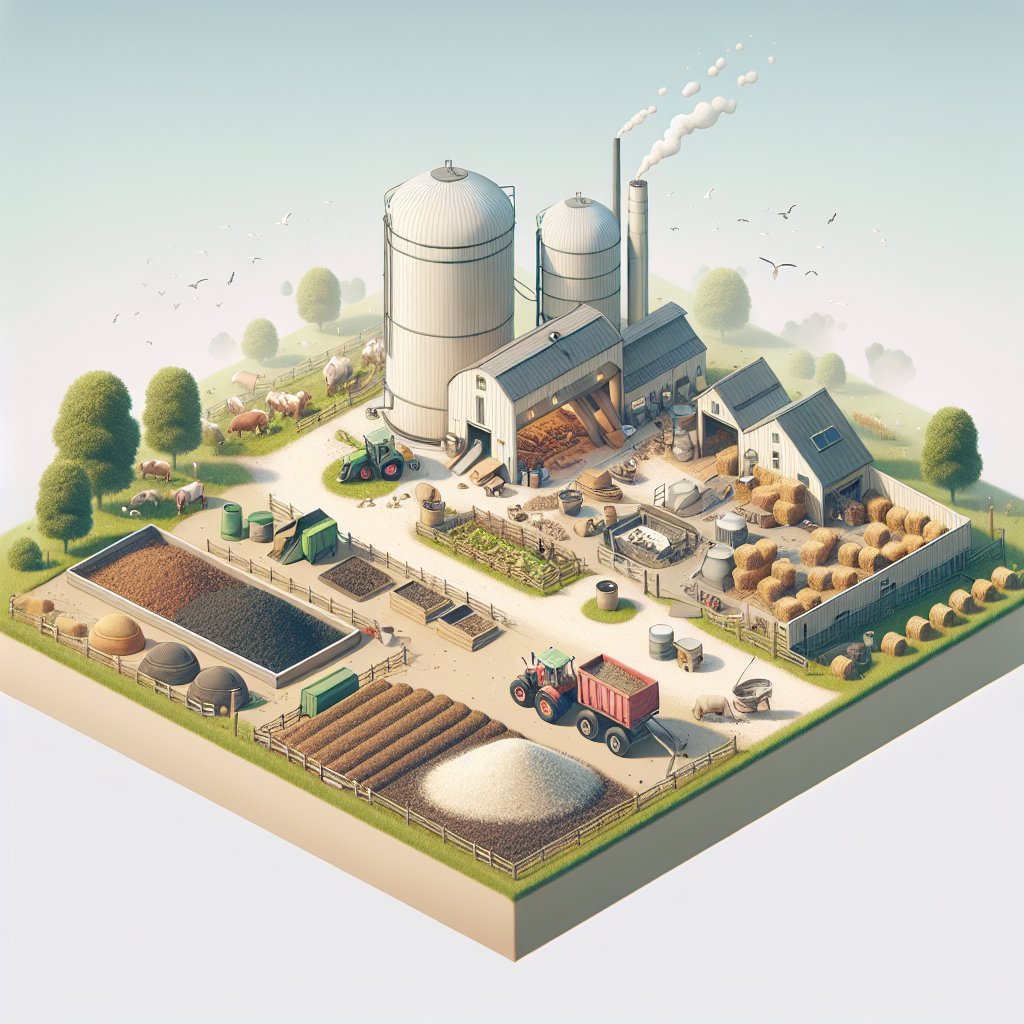
Farm by-products, often considered waste, can be transformed into valuable resources that generate additional income for farmers. By rethinking the potential of these by-products, agricultural enterprises can enhance sustainability and profitability. This article explores various strategies for utilizing farm by-products effectively.
Understanding Farm By-Products
Farm by-products are the secondary outputs that result from agricultural processes. These can include crop residues, animal manure, and other organic materials that are not the primary focus of production. Traditionally, these by-products have been seen as waste, but with innovative approaches, they can be repurposed to create new revenue streams.
One of the most common farm by-products is crop residue, which includes stalks, leaves, and husks left in the field after harvest. These materials can be used in several ways, such as animal feed, bioenergy production, or as raw materials for composting. Similarly, animal manure, which is often considered a disposal problem, can be converted into valuable fertilizers or biogas.
Understanding the composition and potential uses of these by-products is crucial for farmers looking to diversify their income. By analyzing the specific by-products available on their farms, agricultural producers can identify the most suitable and profitable applications.
Strategies for Utilizing Farm By-Products
There are several strategies that farmers can employ to make the most of their by-products. These strategies not only help in waste management but also contribute to the overall sustainability of the farming operation.
1. Composting
Composting is a natural process that transforms organic waste into nutrient-rich soil amendments. By composting crop residues and animal manure, farmers can produce high-quality compost that can be used to improve soil fertility and structure. This not only reduces the need for chemical fertilizers but also enhances soil health, leading to better crop yields.
To start composting, farmers need to create a balanced mix of green and brown materials, maintain adequate moisture levels, and ensure proper aeration. The resulting compost can be used on the farm or sold to other farmers and gardeners, providing an additional income stream.
2. Bioenergy Production
Farm by-products can also be used to produce bioenergy, which is a renewable energy source derived from organic materials. Crop residues and animal manure can be converted into biogas through anaerobic digestion, a process that breaks down organic matter in the absence of oxygen. The biogas produced can be used for heating, electricity generation, or as a vehicle fuel.
Investing in a biogas plant can be a significant upfront cost, but it offers long-term benefits by reducing energy costs and providing a sustainable energy source. Additionally, the digestate, a by-product of the anaerobic digestion process, can be used as a high-quality fertilizer.
3. Animal Feed
Another way to utilize farm by-products is by converting them into animal feed. Crop residues such as straw, husks, and leaves can be processed and used as feed for livestock. This not only reduces feed costs but also provides a sustainable way to manage crop residues.
Farmers can also explore the use of by-products from food processing industries, such as fruit and vegetable peels, as animal feed. These materials are often rich in nutrients and can be a cost-effective alternative to traditional feed sources.
4. Value-Added Products
Farmers can also create value-added products from by-products, which can be sold at a premium. For example, fruit peels can be used to make jams, jellies, or natural dyes. Similarly, crop residues can be used to produce biochar, a form of charcoal that can improve soil health and sequester carbon.
By investing in small-scale processing equipment, farmers can transform by-products into marketable goods, increasing their income and reducing waste. This approach requires creativity and market research to identify potential products and target customers.
Challenges and Considerations
While utilizing farm by-products offers numerous benefits, there are also challenges and considerations that farmers need to address. One of the main challenges is the initial investment required for equipment and infrastructure, such as composting facilities or biogas plants. Farmers need to carefully assess the costs and potential returns before embarking on these projects.
Another consideration is the need for technical knowledge and skills to effectively manage by-product utilization processes. Farmers may need to seek training or collaborate with experts to ensure successful implementation. Additionally, regulatory requirements and market demand for by-products and value-added products can vary, so farmers need to stay informed and adapt to changing conditions.
Conclusion
Farm by-products, when utilized effectively, can become valuable assets that contribute to the sustainability and profitability of agricultural operations. By exploring strategies such as composting, bioenergy production, animal feed, and value-added products, farmers can turn waste into wealth. While there are challenges to overcome, the potential benefits make it a worthwhile endeavor for those looking to diversify their income and enhance their farm’s sustainability.
Ultimately, the key to success lies in understanding the specific by-products available, investing in the right technologies, and staying informed about market trends and regulatory requirements. With the right approach, farm by-products can become a significant source of additional income and a step towards a more sustainable agricultural future.

